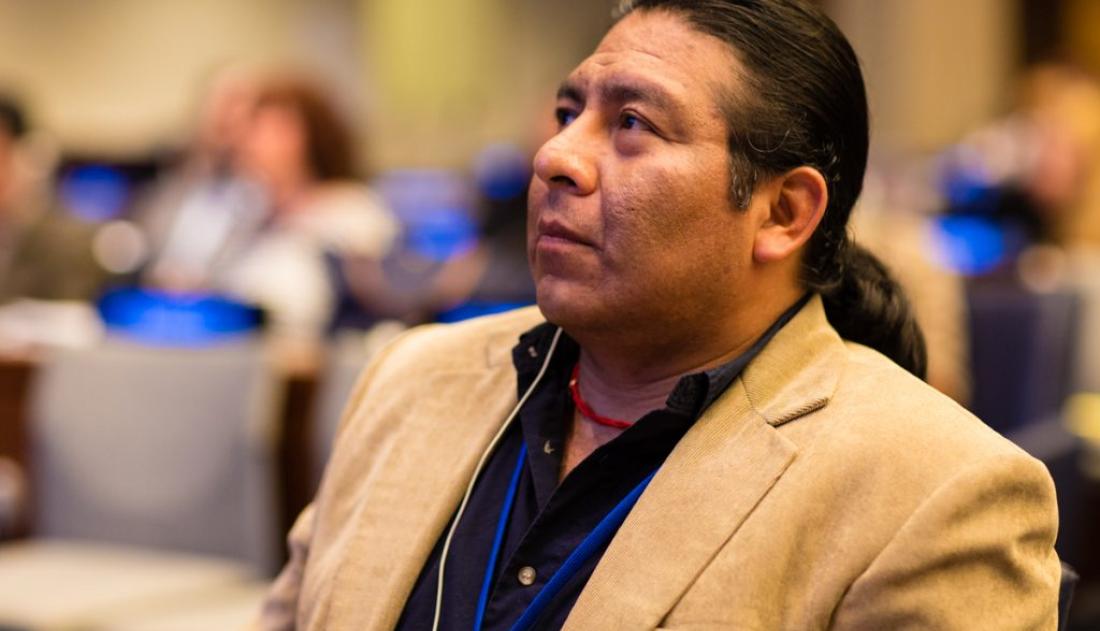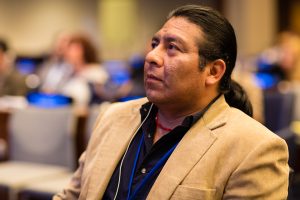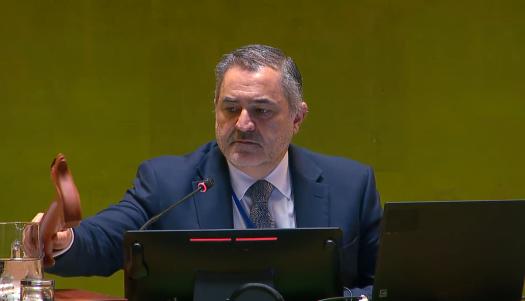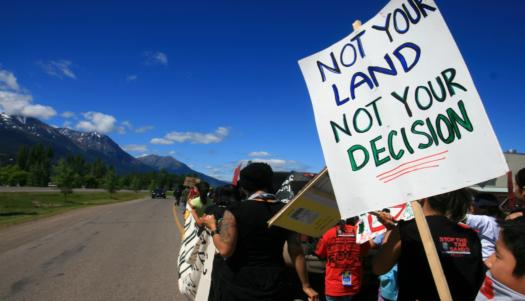
 United Nations, New York – 19 June 2016 – Indigenous women and girls suffer disproportionately as victims of sexual violence in times of conflict. Being the face of their distinct cultures and identities, Indigenous women and girls have too often been systematically targeted, used as “spoils of war” and been subjected to sexual violence, rape and even sexual slavery. The April 2016 report of the UN Secretary-General on conflict-related sexual violence shows cases, where Indigenous women and women of African descent constitute up to 30 per cent of registered victims of sexual violence.
United Nations, New York – 19 June 2016 – Indigenous women and girls suffer disproportionately as victims of sexual violence in times of conflict. Being the face of their distinct cultures and identities, Indigenous women and girls have too often been systematically targeted, used as “spoils of war” and been subjected to sexual violence, rape and even sexual slavery. The April 2016 report of the UN Secretary-General on conflict-related sexual violence shows cases, where Indigenous women and women of African descent constitute up to 30 per cent of registered victims of sexual violence.
The Permanent Forum on Indigenous Issues has been calling for action to end violence against Indigenous Peoples, particularly women and girls, ever since our establishment in 2000. But sadly, we continue to hear reports of sexual and gender-based violence. This violence increases in the most extreme cases of violent conflicts and war, but often also in land-related conflicts, where mining, hydropower and other major development projects displace Indigenous Peoples and bring external actors on to their ancestral lands and territories.
In our report from the 15th Session of the Permanent Forum on Indigenous Issues, we recommend bringing the issue of protection, security and rights of Indigenous girls and women in conflict settings in to the framework and implementation of Security Council resolution 1325 on women, peace and security. Furthermore, we recommend action at the national level, where governments, local authorities, United Nations agencies and civil society should collaborate with Indigenous Peoples to establish multi-sectoral and holistic approaches to combat violence.
Even though this unacceptable situation continues in many parts of the world, this year has also seen some major positive advances and cases where justice has been achieved. Earlier this year, we witnessed the historical case of Sepur Zarco in Guatemala, where the Guatemalan Supreme Court after decades finally sentenced former military representatives for the sexual violence and slavery they had committed against Indigenous women during Guatemala’s civil war in the 1980s. This case is the first sexual slavery case heard in a national court – and it recognised the army’s use of rape as a weapon of war and of genocide. The case therefore sets an important precedent nationally and globally.
Today, on this first International Day of Elimination of Sexual Violence, we call upon Member States to respect and ensure the human rights of all persons and peoples, also in times of conflict and post-conflict. It is crucial to ensure effective accountability and end impunity for sexual crimes. Survivors and others must be supported in their efforts to ensure access to justice and must be given a voice in the resolution of conflict and re-establishment of harmony. We condemn all forms of sexual violence in conflict and call for its full eradication.
See the text in PDF here >>>>>
For more information, please click here for the International Day for the Elimination of Sexual Violence in Conflict webpage.
 Welcome to the United Nations
Welcome to the United Nations


